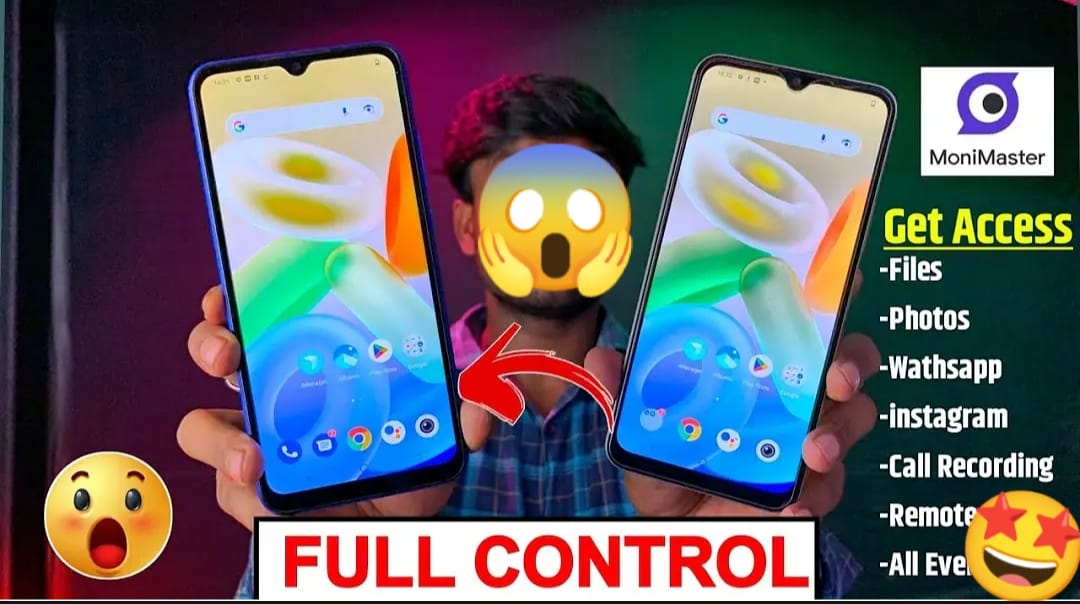In an era where technology permeates every facet of life, mobile phones have become indispensable. With the surge in their usage, a new category known as “Control mobile phones” has emerged. These devices go beyond basic communication, offering enhanced features for monitoring, regulating, and managing various aspects of life. This article delves into the concept of Control mobile phones, exploring their functionality, features, advantages, and disadvantages, and presenting alternative options for users.
What are Control mobile phones?
Control mobile phones are advanced mobile devices designed to provide users with increased oversight and management capabilities over various functions and applications. Unlike standard mobile phones, these devices come equipped with specialized software and hardware features that allow for extensive control over communication, security, data usage, and even physical environments.

How Control mobile phones Work
Control mobile phones work by integrating advanced software systems and sometimes additional hardware components to extend the phone’s capabilities beyond those of a standard smartphone. These systems can include parental control apps, enterprise mobility management (EMM) tools, or specialized operating systems designed for enhanced security and monitoring.
- Parental Control Apps: These apps allow parents to monitor and restrict their children’s phone usage, blocking inappropriate content, setting screen time limits, and tracking location.
- Enterprise Mobility Management (EMM): Used by businesses to manage and secure employees’ mobile devices, ensuring that corporate data remains secure and that devices comply with company policies.
- Security Features: Enhanced security measures, including biometric authentication, remote wipe capabilities, and encrypted communication, are often integral to Control mobile phones.
These phones function by using these integrated systems to continuously monitor and regulate the phone’s activities according to the preset parameters.
Features of Control mobile phones
Control mobile phones boast a wide array of features designed to enhance user oversight and management. Some of the most prominent features include:
- Parental Controls
- Content Filtering: Blocking access to inappropriate websites and apps.
- Screen Time Management: Setting limits on how long the phone can be used.
- Location Tracking: Real-time tracking of the phone’s location.
- Activity Monitoring: Reviewing the apps and websites used by the phone.
- Security Enhancements
- Biometric Authentication: Using fingerprints or facial recognition for unlocking the phone.
- Encrypted Communication: Ensuring that calls, messages, and data transfers are secure.
- Remote Wipe: The ability to erase data remotely if the phone is lost or stolen.
- App Permissions Management: Controlling which apps can access certain data or functions on the phone.
- Enterprise Mobility Management (EMM)
- Device Configuration: Setting up devices according to company policies.
- App Management: Installing, updating, and removing apps remotely.
- Data Security: Ensuring all data on the phone is secure and compliant with company regulations.
- Usage Monitoring: Tracking how and when the phone is used.
- Environmental Controls
- Smart Home Integration: Controlling smart home devices like thermostats, lights, and security systems.
- IoT Device Management: Managing Internet of Things (IoT) devices connected to the phone.
- Performance Monitoring
- Battery Usage Monitoring: Keeping track of how apps and services impact battery life.
- Storage Management: Monitoring and managing the phone’s storage to optimize performance.
- Network Usage Monitoring: Tracking data usage to prevent overages.
Pros of Control mobile phones
| Pros | Description |
|---|---|
| Enhanced Security | Provides robust security features such as biometric authentication and encrypted communication. |
| Parental Control | Allows parents to monitor and regulate their children’s phone usage effectively. |
| Corporate Management | Facilitates comprehensive device management for businesses, ensuring compliance and security. |
| Smart Home Integration | Enables seamless control of smart home devices. |
| Data Protection | Offers advanced data protection features like remote wipe and secure data storage. |
| Usage Monitoring | Provides detailed monitoring of device usage, enhancing user awareness and control. |
| Customization | Highly customizable to meet specific user needs and preferences. |
| Environmental Control | Allows users to manage various environmental devices and systems through their phone. |
Cons of Control mobile phones
| Cons | Description |
|---|---|
| Complexity | Can be more complex to set up and manage compared to standard smartphones. |
| Cost | Generally more expensive due to additional features and hardware. |
| Privacy Concerns | Potential for misuse, particularly in terms of privacy and surveillance. |
| Battery Drain | Enhanced features and continuous monitoring can lead to faster battery drain. |
| Learning Curve | Requires time and effort to learn and utilize all features effectively. |
| Dependence on Internet | Many features rely on a constant internet connection. |
| Compatibility Issues | May face compatibility issues with certain apps or systems. |
| Maintenance | Regular updates and maintenance are required to keep features functional and secure. |
Control mobile phones Alternatives
| Alternative | Description | Pros | Cons |
|---|---|---|---|
| Standard Smartphones with Control Apps | Regular smartphones equipped with specific control apps. | Affordable, customizable. | Less integrated control, potential for software conflicts. |
| Feature Phones | Basic phones with limited internet and app functionality. | Cost-effective, longer battery life. | Limited functionality, not suitable for all users. |
| Rugged Phones | Designed for durability, often with enhanced security features. | Durable, suitable for harsh environments. | Typically bulkier, fewer advanced features. |
| Custom ROMs | Installing custom operating systems on regular smartphones. | Highly customizable, enhanced control. | Technical expertise required, potential voiding of warranty. |
| Enterprise-specific Devices | Phones designed specifically for business use with integrated management features. | High security, tailored for enterprise needs. | Expensive, limited to business features. |
| Wearable Devices | Smartwatches and other wearables with control features. | Convenience, additional health tracking features. | Limited functionality compared to phones, dependent on a primary device. |
Conclusion and Verdict on Control mobile phones
Control mobile phones represent a significant advancement in mobile technology, offering a suite of features designed to enhance security, manageability, and user control. They are particularly beneficial for parents looking to oversee their children’s mobile usage, businesses aiming to secure corporate data, and individuals seeking to integrate their mobile devices with smart home systems. However, they come with certain drawbacks, including complexity, higher costs, and potential privacy issues.
The decision to invest in a Control mobile phone should be based on the specific needs and circumstances of the user. For those who require advanced control and security features, these devices offer unparalleled advantages. However, for users who may find the additional features unnecessary or cumbersome, exploring alternatives such as standard smartphones with control apps or feature phones may be more suitable.
FAQs Control mobile phones
- What makes a Control mobile phone different from a regular smartphone? Control mobile phones have advanced software and hardware features for enhanced security, parental control, and device management, unlike regular smartphones which may require additional apps to achieve similar functionality.
- Can Control mobile phones be used for regular phone activities? Yes, Control mobile phones can perform all regular smartphone functions, including calling, texting, browsing, and using apps, in addition to their specialized control features.
- Are Control mobile phones suitable for elderly users? They can be, especially if the elderly user needs enhanced security features or if a caregiver needs to monitor and assist with the phone’s usage. However, the complexity might be a drawback for some seniors.
- How do Control mobile phones ensure data security? They use features like biometric authentication, encrypted communication, and remote wipe capabilities to protect user data.
- Do all Control mobile phones have parental controls? While many do, it’s important to check specific models for the presence and extent of parental control features, as these can vary.
- Can I install my own apps on a Control mobile phone? Yes, you can typically install apps from the respective app store, but some Control mobile phones may have restrictions or require permissions for certain installations to maintain security.
- How expensive are Control mobile phones compared to regular smartphones? They tend to be more expensive due to the additional hardware and software features, but the price can vary widely based on the brand and specific features offered.
- What should I consider before buying a Control mobile phone? Consider your specific needs for security, parental control, and device management, as well as your budget, technical comfort level, and whether you need the additional features they offer.
- Can Control mobile phones be used internationally? Most Control mobile phones can be used internationally, but you should check for compatibility with local networks and any potential restrictions based on region.
- How often do Control mobile phones need software updates? Like regular smartphones, Control mobile phones require regular updates to ensure security and functionality. The frequency can vary by manufacturer and model.
